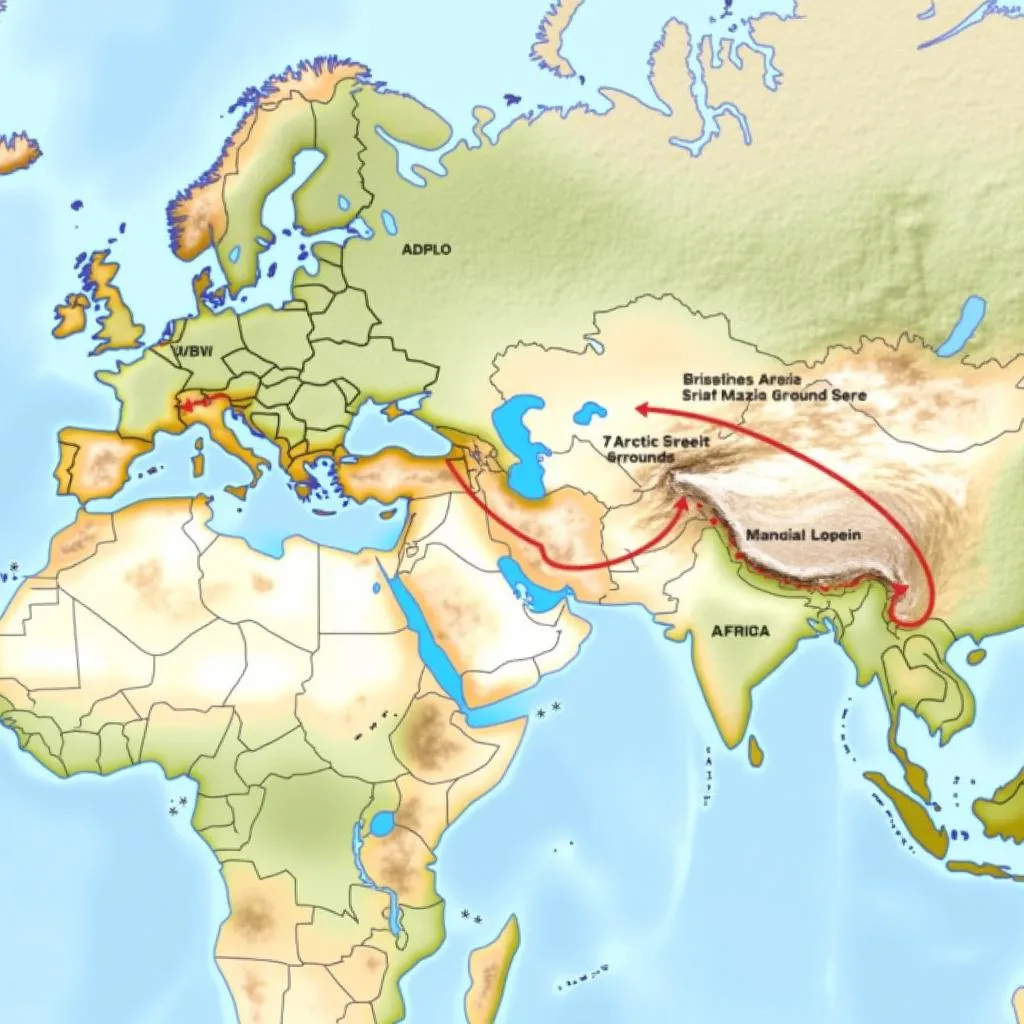Exploring African Countries with Strong Currencies
Africa, a continent rich in diverse cultures, breathtaking landscapes, and a vibrant history, also boasts a fascinating economic landscape. While perceptions of African currencies may be influenced by various factors, several nations within this dynamic continent have strong currencies that hold their own on the global stage.
Factors Influencing Currency Strength
Before we dive into the specific African countries with strong currencies, it’s essential to understand the factors that contribute to a currency’s value. Some of the key elements include:
- Economic Stability: A robust and stable economy with low inflation rates and a favorable balance of trade attracts foreign investment, which in turn strengthens the currency.
- Political Stability: A peaceful political environment and sound governance are crucial for investor confidence and currency stability.
- Natural Resources: Countries with abundant and valuable natural resources, such as oil, gold, and diamonds, often have stronger currencies.
- Debt Levels: High levels of foreign debt can weaken a currency as a significant portion of national income goes towards debt servicing.
- Monetary Policy: Effective monetary policies, such as managing interest rates and inflation, play a vital role in maintaining a stable currency value.
Top African Countries with Strong Currencies
Here are some of the African countries that consistently rank high in terms of currency strength:
1. Libyan Dinar (LYD)
The Libyan Dinar has long held the crown as the strongest currency in Africa. Libya’s vast oil reserves and relatively small population contribute significantly to its strong currency.
2. Tunisian Dinar (TND)
The Tunisian Dinar is another North African currency that punches above its weight. Tunisia’s strong tourism industry, agricultural exports, and political stability have all contributed to the Dinar’s strength.
3. Moroccan Dirham (MAD)
The Moroccan Dirham is a stable and widely traded currency in North Africa. Morocco’s diverse economy, including tourism, agriculture, and manufacturing, along with its strategic location, has fostered a robust currency.
4. Ghanaian Cedi (GHS)
The Ghanaian Cedi has made remarkable strides in recent years. Ghana’s economic growth, fueled by gold and cocoa exports, has positively impacted the Cedi’s value.
5. Botswana Pula (BWP)
Botswana’s diamond industry is the backbone of its economy and a major contributor to the Pula’s strength. The country’s sound fiscal policies and commitment to transparency have also bolstered investor confidence.
6. Seychelles Rupee (SCR)
The Seychelles, an archipelago of stunning islands in the Indian Ocean, boasts a strong economy driven by tourism. The Seychelles Rupee has benefited from the country’s thriving tourism sector and stable political environment.
7. South African Rand (ZAR)
While the South African Rand has experienced some fluctuations in recent years, it remains one of the most traded currencies in Africa. South Africa’s diversified economy, abundant natural resources, and well-developed financial markets contribute to its currency’s resilience.
Benefits of a Strong Currency
A strong currency can bring numerous advantages to a country and its citizens, including:
- Increased Purchasing Power: Individuals can purchase more goods and services from other countries with a strong currency.
- Lower Import Prices: Imports become cheaper, leading to lower inflation and increased consumer spending.
- Attractive Investment Destination: Foreign investors are more likely to invest in countries with strong currencies, as their investments will be worth more in their home currencies.
- Reduced Debt Burden: Countries with strong currencies can borrow money at lower interest rates, reducing their debt burden.
The Impact of Strong Currencies on African Economies
The strength of African currencies plays a crucial role in the continent’s economic development. Strong currencies can:
- Promote Trade: Stable and strong currencies facilitate international trade, making it easier for African countries to export their goods and services.
- Attract Foreign Investment: A strong currency signals economic stability and attracts foreign direct investment, boosting economic growth.
- Improve Living Standards: A strong currency can lead to lower inflation, increased purchasing power, and improved living standards for citizens.
Conclusion
African currencies have shown resilience and strength in recent years. While some currencies have faced challenges, several nations on the continent have strong and stable currencies that contribute to their economic growth and development. As Africa continues to diversify its economies and implement sound economic policies, its currencies are poised to play an even more significant role on the global stage.
FAQs
1. What is the strongest currency in Africa?
The Libyan Dinar (LYD) is currently the strongest currency in Africa.
2. Why are some African currencies stronger than others?
Factors such as economic stability, political stability, natural resources, debt levels, and monetary policy all influence currency strength.
3. How does a strong currency benefit a country?
A strong currency increases purchasing power, lowers import prices, attracts foreign investment, and reduces debt burden.
4. Which African countries have the most stable currencies?
Countries like Libya, Tunisia, Morocco, Ghana, Botswana, Seychelles, and South Africa are known for their relatively stable currencies.
5. What is the outlook for African currencies in the future?
As African economies continue to grow and diversify, and with sound economic policies in place, the outlook for African currencies is generally positive.
Remember, for any assistance with your travel plans or to learn more about African countries and their independence dates, feel free to reach out to us. We have a dedicated team available 24/7 to assist you. You can reach us via phone at +255768904061, email us at kaka.mag@gmail.com, or visit our office in Mbarali DC Mawindi, Kangaga, Tanzania. We also have a wealth of information available on our website, including details on African countries capital currency and language and African countries by ara. Additionally, you may be interested in our article on African countries by area and population.

